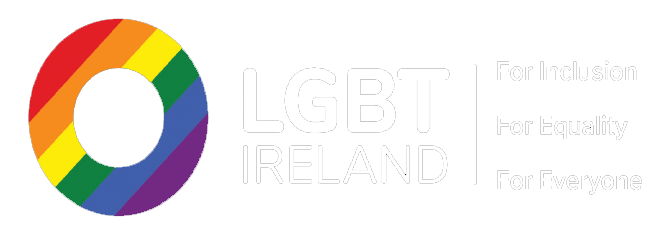September 23rd has been designated Bisexual Visibility Day, which recognizes the prevalence of biphobia and the need to celebrate and highlight the bi+ community. ‘While it means so much that we have an annual day to celebrate our visibility, our community needs to be welcoming of bi+ people all 52 weeks of the year.’
My name is Sharon Nolan, and I’m bisexual.
Stating that so frankly is something that can still make me nervous as heck (even in LGBT+ spaces) but I’m working on it. I’m one of Bi+ Ireland’s Galway coordinators, and I’m also a volunteer from the LGBT Helpline.
Bi+ Ireland is a grassroots organisation for people who fit somewhere under the bi+ umbrella. We are open to and welcoming of the entire bi+ community (bisexual, pansexual, queer, and other non-monosexual identifying people) and have a presence across the island of Ireland. We aim to create a space where bi+ people can make friends, access peer support and reduce any isolation they may experience. We also work at increasing the visibility and presence of bi+ people in Ireland – all while doing what we can to create diverse, vibrant and welcoming communities.
September 23rd marks Bi Visibility Day. It’s a day that has been marked each year since 1999 to highlight biphobia and to help people find the bisexual community. This year, Bi+ Ireland took a further step in organising an entire week of events, extending the celebrations to ‘Bi Visibility Week’, from September 18th to 23rd. We hosted events for our community across Ireland all week long, which you can follow and look back on via our social media.
Studies consistently show that bisexual people experience greater stress as a result of their sexuality than both our gay and straight counterparts. Burning Issues 2, a 2016 report that focuses on our Irish LGBT+ community highlighted that bisexual people in Ireland experienced more distress, more symptoms of depression and more symptoms of anxiety than lesbians and gay men. A combination of the loneliness and the experience of stigma from both the straight community and within the LGBT community have been highlighted as contributing factors to this, so having a whole week to celebrate our community aims at challenging these stigmas and highlighting the positives of our beautiful bi+ community.
Statistics and studies are one thing, but I know the importance of bi+ visibility from my own personal experiences, and the experiences my fellow community members have shared with me over the years.
Back when I was an eager and wide-eyed first year, I was hungry to meet with my LGBT+ family. I was coming to terms with my own sexuality and identity, and I wanted to find others who shared that experience. I’d met some queer folks growing up of course, but I had never had the pleasure of being in an LGBT+ space. I quickly found the LGBT+ society and signed up to volunteer whatever way I could, feeling like I had finally found a space where I could be my authentic bisexual self.
The honeymoon period within this newfound space was rather short-lived though, as it didn’t take long for the biphobia to appear. I made some great friends in this space, but others weren’t so happy about a bisexual person being involved. Terms like “greedy”, “attention-seeking”, and “fence sitter” were thrown at me. I was told if I dated a man I would have to quit. Possibly the most memorable of them all was the person who told me I was “so far in the closet I was with next year’s Christmas presents” after one meeting. The new family I thought I found didn’t want to accept me how I was, but only if I could be read as gay. It was devastating, and not how I ever expected to be treated in an LGBT+ space.
This story has a much happier ending though! I was supported through all of this by other members of the society who helped call this sort of behaviour out for the discrimination it was. I also had friends who stuck by me through all of this and helped build me back up stronger than ever. The following year, I became co-Auditor of the society, and it started me on the path of activism and advocacy.
Being an LGBT Helpline volunteer, I also get to bring the experience of a bi+ person to those we are providing peer support to. The LGBT Helpline has volunteers from all across the LGBT+ spectrum, which I feel contributes to the core strength of the Helpline. If you are looking for a great way to give back to your LGBT+ community, I recommend signing up to join their volunteer team.
Our bi+ community is a vital part of our LGBT+ community. The B in LGBT is often erased, misunderstood, or belittled – and we need to work together to change that. While it means so much that we have an annual day to celebrate our visibility, our community needs to be welcoming of bi+ people all 52 weeks of the year.
You can find about more about the work of Bi+ Ireland on our website, and you can follow us onFacebook and Twitter too!

